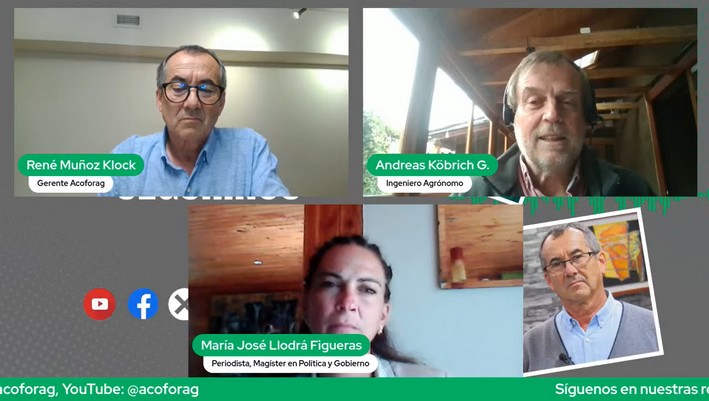On the program "Conversando con la Acoforag," Andreas Köbrich, an agronomist and crop market advisor at the Department of Studies of the National Agricultural Society (SNA), addressed the issue of agricultural waste decomposition in the context of Chile's Mediterranean climate and the use of fire as an agricultural management tool.
Köbrich highlighted that Chile's Mediterranean climate, with dry and hot summers and cold, wet winters, makes the natural decomposition of agricultural waste difficult. "Microbial activity requires moisture and temperature, but our climatic conditions make decomposition slow and, with current techniques, costly," he stated.
Faced with this challenge, the use of fire has been a traditional practice in the sector for clearing crop residues and preparing the soil for new plantings. However, the expert emphasized the need to regulate and apply technology to ensure the safety of these burns. "We have implemented technology and safety protocols to minimize risks. Over the last five or six years, agricultural burns have been safe and have caused few forest fires," he assured.
Winds of up to 80 km/h
The Secretary General of the Consorcio Agrícola del Sur also mentioned that the spread of fires does not depend solely on the use of fire in agriculture but on extreme climatic factors. "The conditions for propagation are key. In February, we had winds of up to 80 km/h at night, which is unusual in La Araucanía. This favors the spread of fires, regardless of their origin," he explained.
In this regard, Köbrich urged against blaming agricultural activity exclusively for forest fires. "We have seen fires caused by accidents, heating system failures, or even poorly executed welding. It is essential to analyze the context and avoid hasty accusations," he noted.
The specialist stressed that the National Forestry Corporation (CONAF) verifies safety conditions before authorizing a burn, including firebreaks and the availability of machinery and trained personnel. "In some years, GPS technology has been used to monitor burns and prevent risks. It's not just about granting permits but ensuring safety conditions are met," he emphasized.
The engineer highlighted the importance of continuing to develop alternative techniques and further improving fire management in the agricultural sector. "Climate change is leading us to more extreme conditions. We must work together to adapt and better manage risks," he concluded.
The full interview is available on Acoforag's YouTube channel:







Comentarios (0)
No hay comentarios aún. ¡Sé el primero en comentar!
Deja un comentario